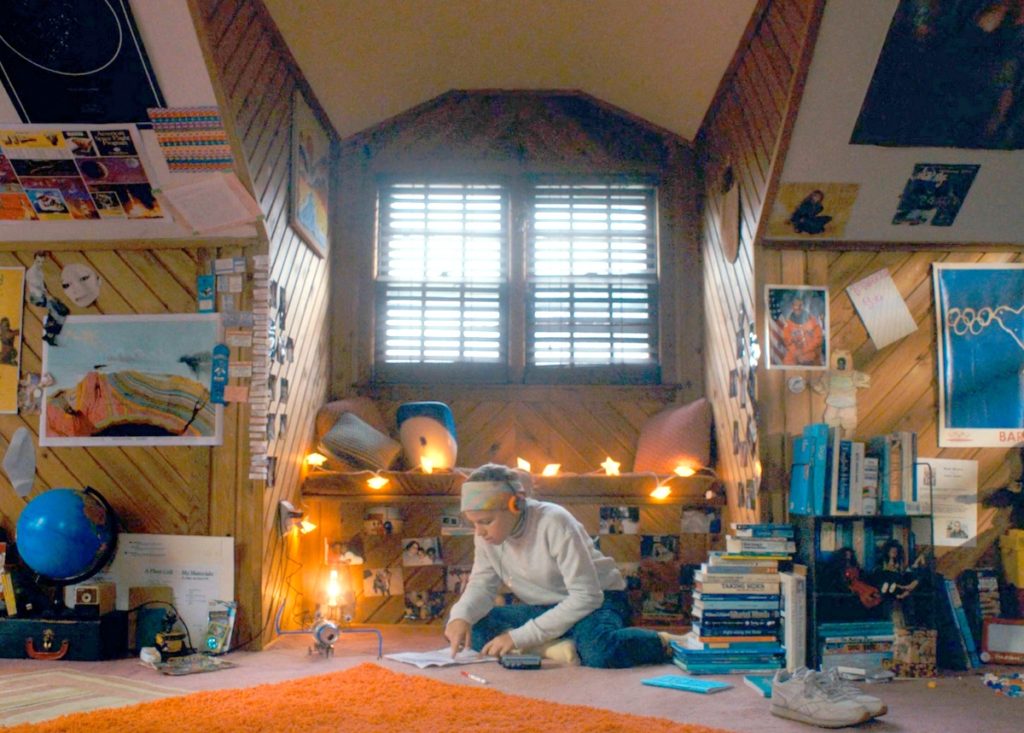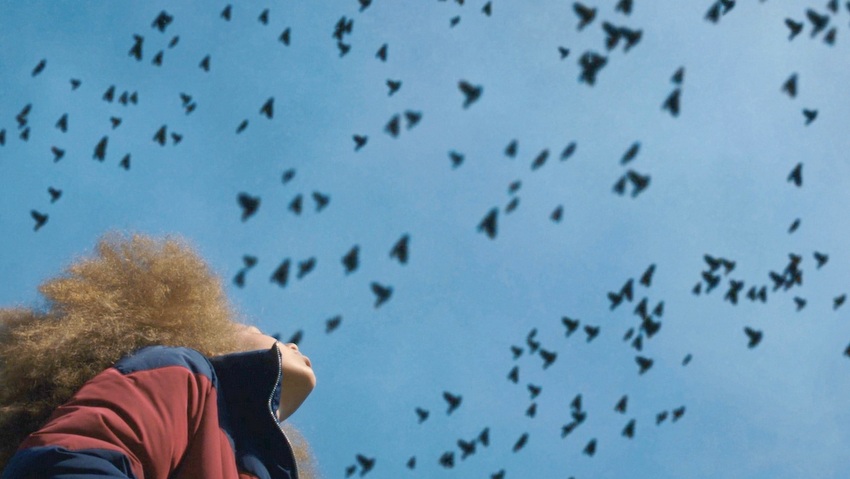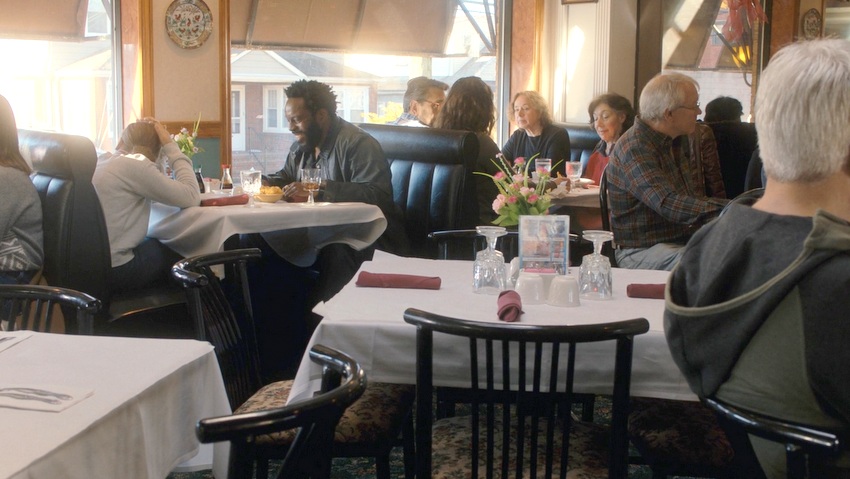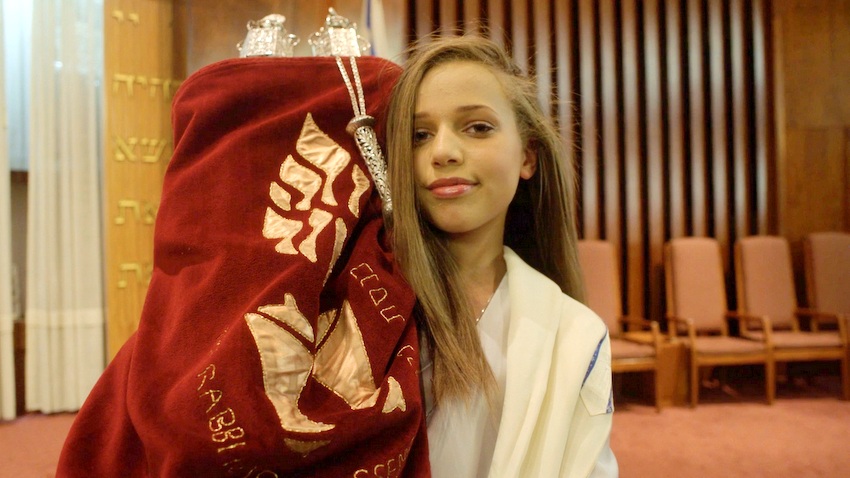
Rachel Harrison Gordon ’s semi-autobiographical film Broken Bird focuses on a biracial girl struggling with her culture and identity, whilst being days away from her Bar Mitzvah. This important film will have its North American Premiere at SXSW Film Festival 2020.
Birdie, a biracial girl raised by her Jewish mom, spends a rare visitation day with her father while preparing for her Bat Mitzvah. They share a meal; she overcomes her doubts, and decides to risk inviting him back into her life. Birdie confronts what independence means as she steps into adulthood on her own terms.
indieactivity : Give a background of your personal experience with the story, writing, production and marketing?
Rachel Harrison Gordon : The story is semi-autobiographical and I’ve been writing it my entire life. Before I knew I would be any sort of storyteller, I captured moments in my life that I thought were cinematic. I never kept a diary, but have thousands of post-its and electronic notes of: scene-music pairings, dialogue ideas, unique exchanges, etc.
I was confident directing because I was so familiar with the story. At every point, I knew answers to critical questions about WHY the characters were saying or doing a specific action at that moment. The actors had significant backstory to draw upon, and I was open and eager to discuss their interpretations of each moment, finding ways for them to draw on their personal lives.
Related Story: ‘Broken Bird’ Depicts a Biracial Girl’s Conflict with Culture & Identity
I’m currently an MFA/MBA dual degree candidate at NYU Tisch for Filmmaking and Stern Business School. I enrolled in this program with the intention of one day creating a production company for my own work and to advocate the stories of others. I’m extremely detail-oriented and found myself engaging in production tasks simultaneously while working on the creative aspects of the project. My partner Alon was a huge source of support, reading every draft of the script, scouting locations, engaging with cast and crew and various critical tasks at every stage. Filmmaking and production is new to us both, and I’m extremely proud of the amazing job we did for our first time.
indieactivity : Did you start writing with a cast (You or any) in mind?
Rachel Harrison Gordon : I didn’t write with specific actors in mind, but ended up with the ideal situation. The character of Birdie is wise beyond her years, and my first meeting with Indigo Hubbard-Salk confirmed she had the poise, wisdom, curiosity and spunk that fit the character. Indigo was recommended to me by Spike Lee. When I met with him to discuss an early draft of the script, we watched some scenes from his Netflix show She’s Gotta Have It, and he thought she would be a great fit for the role. Indigo is also Jewish, and connected with the script in her own way.
I was connected to Chad L. Coleman, the actor playing Andre/Dad via another Tisch professor, Abigail Bess, who had worked with him on various stage projects. I remember being so nervous the first time I called Chad, but we had a long heart-to-heart, and every conversation since has felt like one I would have with family.

indieactivity : How long did you take to complete the script? (Do you have a writing process?)
Rachel Harrison Gordon : The project was done as part of my NYU curriculum. The script was written over a course of two weeks before my 2nd year of grad school, and was workshopped for about two months throughout the semester. Composing the scenes came together quickly, as well as a feature-length version. Workshopping the short script in class was about refining the moments to make sure they were expressing what I wanted them to say, and realizing there was a home for all of these ideas, even if it wasn’t in this short film.
indieactivity : What was the first project out of the gate?
Rachel Harrison Gordon : Broken Bird is my first film.
indieactivity : During production, what scene (that made the cut) was the hardest to shoot?
Rachel Harrison Gordon : The final scene, when Birdie is standing outside on the day of her Bat Mitzvah, waiting for her father to show up. We had a couple variations of the ending before beginning production, and had to figure out a way to make the character triumphant. A related challenge was the semi-autobiographical nature of the story, which made me protective of both of my parents. Initially there was this sense that I had to make their screen time, or their emotional arcs “equal,” and I was hesitant to portray another Black man on screen who fails to keep his commitment. In the end, Birdie’s story is optimistic. I am confident that the audience recognizes she is stronger and more confident as a result of being able to incorporate all of her family.
indieactivity : You produced and directed the film, what measure of input did it take to don these hats?
Rachel Harrison Gordon : Being on set just felt right. I’ve had many careers before filmmaking, including Mechanical Engineering, and applied to my current dual degree program because I still couldn’t see myself as an artist. Being on set was the most empowering and grounded I’ve ever felt, directing is my happy place. After all my previous jobs, I’m so glad I finally found what I want to do forever.
I wasn’t afraid to ask for help and to rely on experts within each of our departments. I was extremely grateful for each of the people that believed in the story and in me as an individual to be a part of this project, especially without seeing any other previous work.
indieactivity : Is there anything about the independent filmmaking business you still struggle with?
Rachel Harrison Gordon : The stories we tell are priceless, yet there is the expectation to trade your craft and time for free. There seems to be a greater gap between skill set and salary in this industry more than any other I’ve participated in.

indieactivity : Where do you think your strengths line as a filmmaker?
Rachel Harrison Gordon : I am perceptive. I could sense the actress playing Birdie felt uncomfortable having her hair washed on the day we scheduled it to happen, but she didn’t want to say anything to disappoint me. I couldn’t start my filmmaking career as a director who puts their actors in situations without their full consent. We rescheduled the scene to a day where we could create an environment the actor was comfortable with. Even though this was a critical scene, it was worth it to go home without it.
I’ve been on sets where the health and well-being of the group was not prioritized. It was important to me to work to create an environment that everyone would be happy with. As a result, we became a family.
indieactivity : Let’s talk finance, How did you finance the film?
Rachel Harrison Gordon : Honestly, we financed this film in a way that we cannot reproduce: we used a significant portion of our wedding gifts.
indieactivity : How much did you go over budget? How did you manage it?
Rachel Harrison Gordon : We came within our budget, a result of a thoughtfully created budget and the generosity of many people who devoted their time and resources to us heavily discounted. However, there were also some unexpected costs that resulted from me trusting people despite red flags. There were some duplicate post-production costs that occurred, partly because I wasn’t confident that I was clear about a technical issue, and disobeyed my judgement to defer to the “expert.” Turns out I was right, and should have pushed back on some of the answers I received. I learned many lessons about trusting my gut and the qualities of people I could rely on.
indieactivity : How important is marketing? Do you think a project can make any dent without it these days?
Rachel Harrison Gordon : I am proud that the film has been accepted to festivals that have blind submissions. I wasn’t an alum at Berlin or SXSW, I had never made a film before. I do feel like we were incredibly lucky, but I like to believe that this story speaks for itself.
indieactivity : Can you tell us about your marketing activities on the project – and how it’s gone for you?
Rachel Harrison Gordon : We haven’t marketed the film. It was only after we were accepted into 10+ festivals did we begin to engage with a publicist.
indieactivity : What do you hope audiences get from your film?
Rachel Harrison Gordon : The title of Broken Bird critiques a harsh label often applied to people in situations like Birdie: the daughter of divorced parents affected by substance use, confused about where she fits in racially and spiritually. I remember internalizing whispers of my “broken” home to mean I was different. Despite the film’s events, the characters’ stories are not ones of defeat. I hope this film shows the benefits of celebrating the complexities of people.

Many portrayals of Black Jews are tokenized and fetishized as something strange or for comedy, and in my personal interactions, I have learned to re-interpret this “strangeness” as uniqueness. This lesson to embrace one’s uniqueness was a goal of the film.
indieactivity : What else have you got in the works?
Rachel Harrison Gordon : There is a feature-version of Broken Bird that follows both Birdie and her father’s stories. I’m still at my grad film program, and am directing-writing a short we are filming February 2021. I’ve written a few other shorts, and would love to produce those in the next year as well.
I am also interested in creating music videos and commercials, and am excited to incorporate non-traditional storytelling methods in all of my projects.
Tell us what you think of the interview with “Rachel Harrison Gordon” What do you think of it? What ideas did you get? Do you have any suggestions? Or did it help you? Lets have your comments below and/or on Facebook or Instagram! Or join me on Twitter @oladapobamidele
Follow Rachel Harrison Gordon on Social Media
Website
IMDb
LinkedIn
Instagram
Vimeo
Apple TV picks up “Dismissed” by Aysha Scott After it Hit a Million Views
Single mother entrepreneur from South-East London, built up an empire from scratch.
MOEDER Oscar® Qualified Drama Based on MH17 Airline Disaster
OSCAR® Qualified MOEDER tells a story tragedy on the Ukrainian-Russian border
Nate & John Oscar® qualified Animation Short Directed by Jumai Yusuf
NATE & JOHN heartwarming animation short qualifies for the 97th Academy® Awards
Dreama Team by Chad Weber & Steve Vanderheide Acquired by Freestyle for November Release
Feature Documentary Dreama Walton Sets Digital Debut for Global VOD Platforms and on DVD on Nov 1, 2024
LGBTQ+ Film, “Muscat” by Philippe Grenier Qualified the Oscars®
Muscat is an audacious exploration of a young boy confronted with the discovery of his identity
Joy of Horses by Ava Justin acquired by BMG Global
Joy of Horses by Ava Justin, now available across digital streaming platforms
Vanessa Valente Talks Reality TV, Online Bullying and Healing on Sisters Uncensored Podcast
The Temptation Island’s reality TV star joins Sisters Uncensored Podcast October 16th
Oscar® qualifying Sunflower: A story of resilience in a war-torn country
Mateusz Balcerek’s Oscar® qualifying Sunflower is an extraordinary story of resilience in a war-torn country









